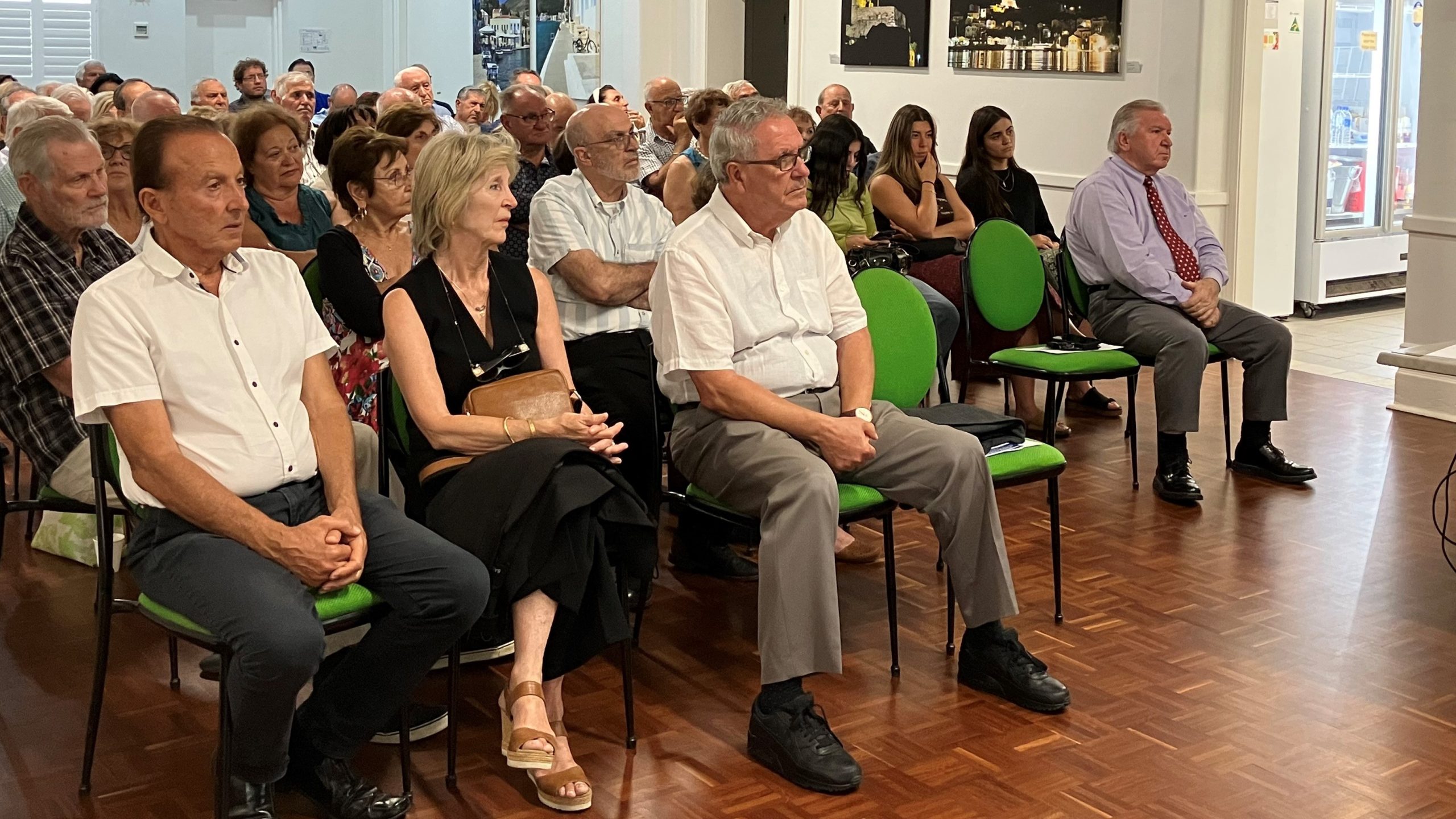The Australian Institute of Macedonian Studies (AIMS) held its first ever lecture in Perth, Western Australia recently on Greek – Turkish relations (1922 – 2022).
The impressive lecture was given by Professor Anastasios M. Tamis in the crowded hall of the Kastellorizian Association of Western Australia.
The lecture was attended by the President of the Hellenic Community of WA, Pavlos Afkos OAM; the President of the Australian Hellenic Council, Evangelos Kakoulas; Bill Evangelinou from the Greek Branch of the RSL; presidents and representatives of local Kastellorizian and Cypriot communities; as well as academics, educators, scientists, businessmen and members of the wider community.
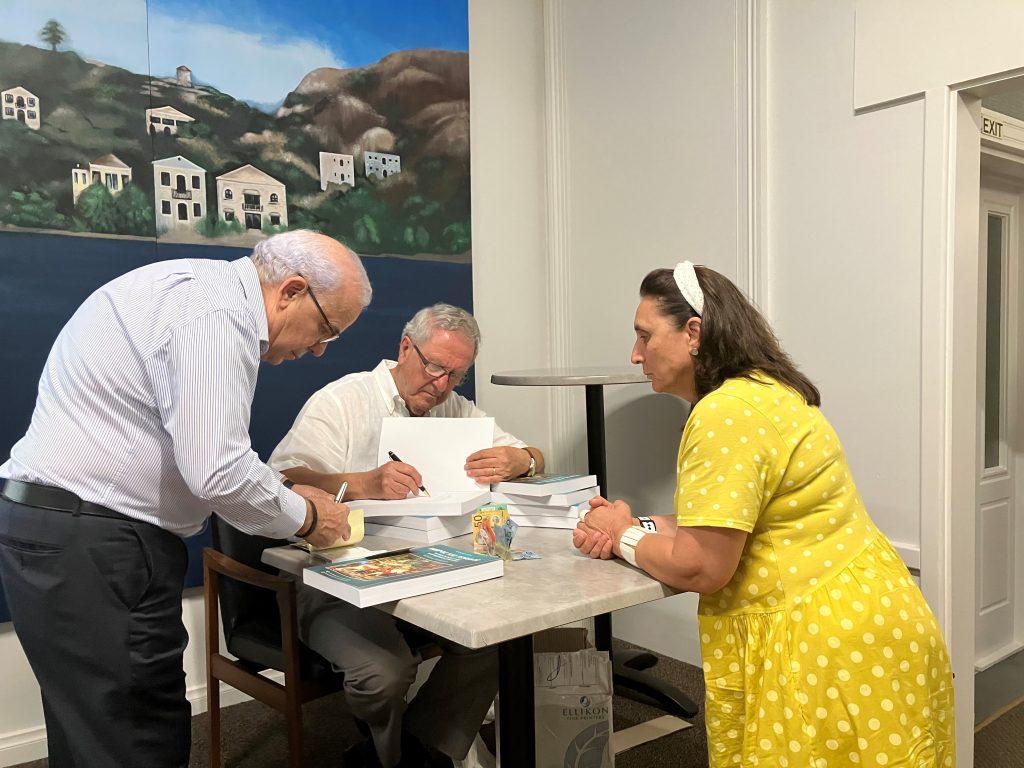
The event was organised by the President of AIMS (WA), Savvas Papassavas, and the teacher, Garyfalia Lambropoulou, with the coordinating responsibility and presentation by Costas Dimitriadis.
It was opened by a cluster of young students of the University of Western Australia and a short speech was given in Greek on behalf of the President of the Association, Athena Paizis, a student of Classical History, affirming their devotion to Greek culture and identity.
This was followed by a video about Greece and its diachronic course, as well as a short video with George Dalaras in New York in 1994, commemorating the Turkish invasion. The guests were welcomed by Mr Afkos, who referred to the centennial celebrations of the Community and its national role and mission, but also to the enormous writing work of Professor Tamis.
This was followed by the salutation of the President of Kastellorizian Association of WA, Demetrios Mafitis, and the enthusiastic short speech of the philologist, Savvas Papasavvas, who referred to the importance of Greek culture, as well as in preserving the cultural physiognomy and identity of the members of the Hellenic diaspora at an intergenerational level.
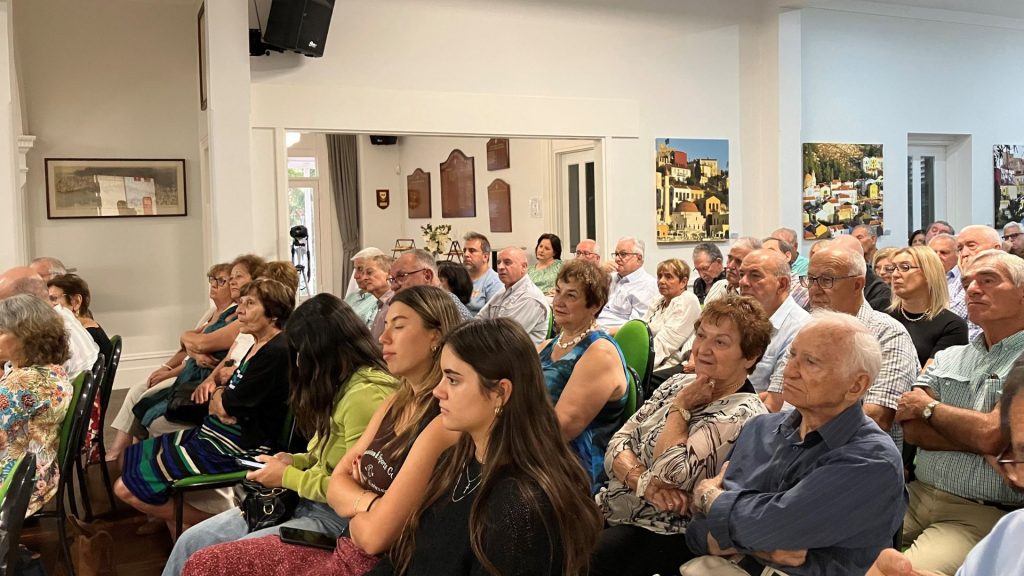
Professor Tamis, who is also President of the Institute of Macedonian Studies of Australia, gave the founding lecture of AIMS (WA). Using archival material and other primary sources, he developed the ambiguous, sensitive and often problematic relationship between the two historical peoples, Greeks and Turks.
Professor Tamis first referred to the difficult years of the Greek minority in Constantinople, Imbros and Tenedos, to the relentless persecution of the Greeks left by the Treaty of Lausanne in the hands of the Turks intransigents and nationalists. He spoke about the systematic extermination of the Greek element, the desecrations, the exiles, the deportations, the closure of Greek schools, the destruction of chapels, the depopulation of the countryside, the militarisation of Imbros, the settlement of Turks from Anatolia, the free and systematic relocation to Imbros of criminals and prisoners with the aim of terrorising the inhabitants.
The speaker denounced the statute of limitations and circumvention of the treaties of the Treaty of Lausanne by the Turks, the abolition of the self-government of the islands, the election of Greek leaders, notables and mayors, the annexation of the islands to the Prefecture of Çanak Kale, the forced exodus and flight of the Imbrians and Tenedians to Greece, Africa, America and Australia, the prohibition of the granting of passports and the removal of Turkish citizenship, so that they can never claim their properties.
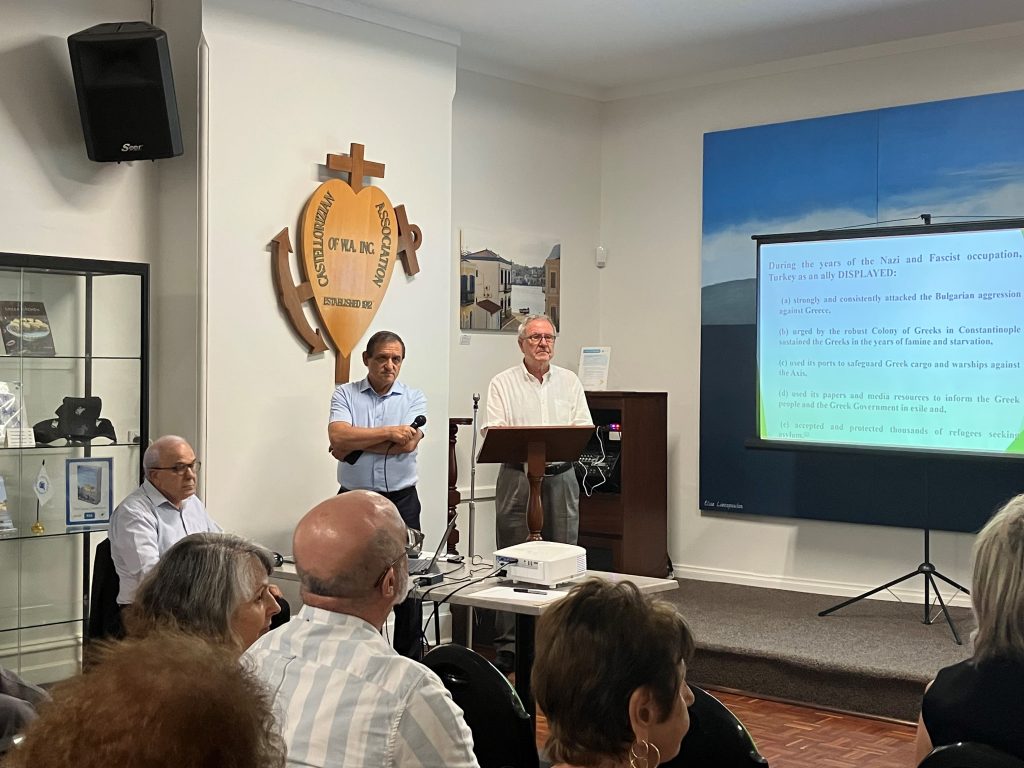
Mr Tamis then referred to the other dimension of Greek-Turkish relations. He spoke about the golden thirty years of friendship and sincere cooperation between the two peoples, in the period 1930-1960. With the rapprochement, the common vision and the mutual friendship of Eleftherios Venizelos with Kemal Pasha, a period of good political, military, economic relations and generally bilateral relations begins.
In these thirty years, bilateral friendship and common defence agreements were signed; the two countries initiated and organised the Balkan Treaty with Romania and Serbia; Greece and Turkey developed a common and cooperative basis for the export trade of tobacco and raisins; organised joint military training in Greece and Turkey. Also, Turkish scouts and Turkish fighter planes flew along with the Greek over Athens and Thessaloniki during the parades on the Day of National Emancipation (March 25th) in a sign of friendship between the two peoples.
For many years, the Turkish Foreign Ministers invited Greece to organise and establish a joint Greek-Turkish Federation, a common system of economic and foreign policy, but with each nation-state retaining its national character. Professor Tamis referred to primary archival sources and gave specific dates and names of the protagonists, as well as excerpts from the minutes of the talks and agreements.
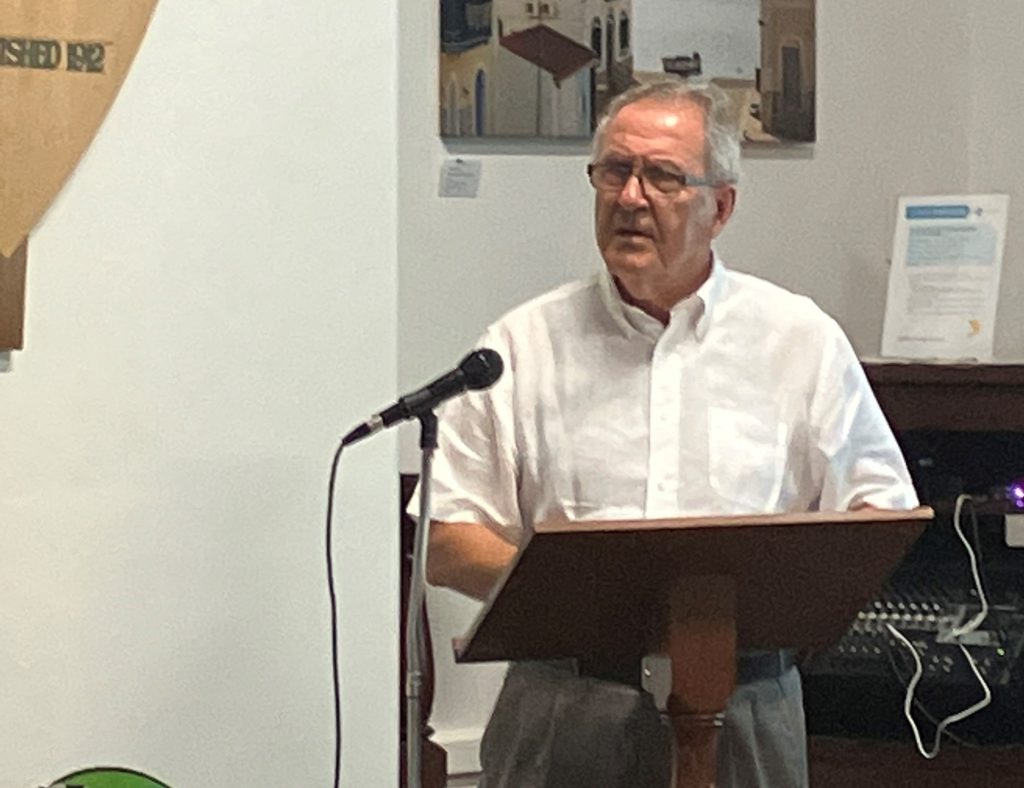
“Unfortunately, Greek-Turkish relations had a structural asymmetry, they went through stages of friendship and questioning, they manifested themselves in various contradictions, setbacks; they often passed from the passable to the inaccessible, from the legitimate to the unfair, from morality to derailment, from the predicted to the unpredictable,” Professor Tamis concluded.
“The animated relations in the form of a pendulum had as their starting point and dependence the leaders of the two peoples and the political circumstances of each era. However, the main and permanent cause of engagement and conflict was their inter-tribal relations in Turkey and Cyprus, the situation in Cyprus after the independence of the Island, but also the rise of dictators in Gürsel’s Turkey in 1960, which coincided with the independence of the island.”

